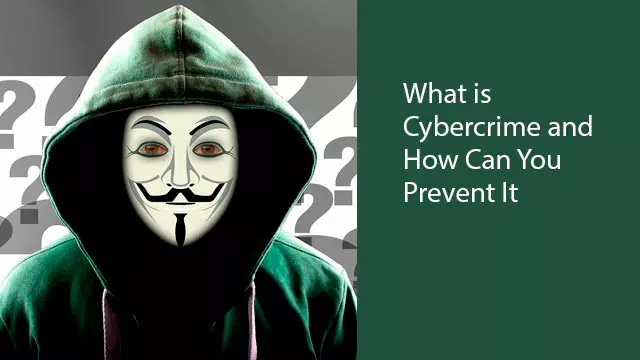What is Cybercrime?
Cybercrime is criminal activities that are carried out by means of computers or through the Internet. These crimes usually target computers or networks or even utilizes them to carry out those attacks. Most of the time, cybercrimes are committed for personal or diplomatic reasons, and rarely with the aim to destroy computers, other than the fact to make a profit. Half of the cybercrimes are organized and are executed by technologically skilled personnel that use advanced procedures, whilst the rest are usually committed by novice hackers.
Different types of Cybercrime
Cybercrime usually comes down under two classifications, which are Criminal activity that targets, for example, computers, which often involve different sorts of malicious software and viruses.
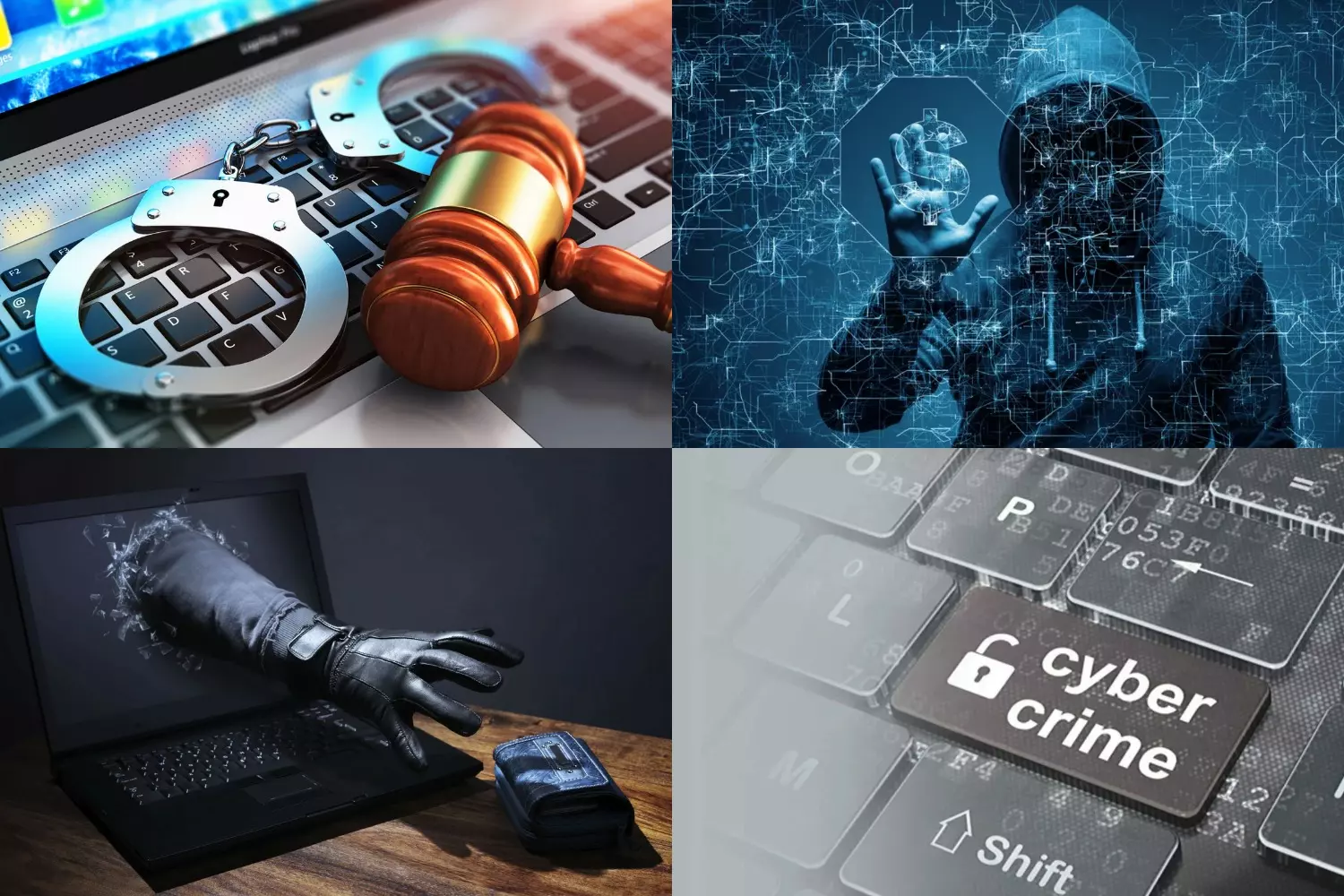 The other class is a criminal activity that utilizes computers in order to carry out cybercrimes. There are also some particular examples of cybercrime, which include:
The other class is a criminal activity that utilizes computers in order to carry out cybercrimes. There are also some particular examples of cybercrime, which include:
- Internet fraud
- Identity fraud
- Financial data or card payment theft
- Theft of corporate data
- Extortion
- Malware attacks
- Cryptocurrency jacking
- Espionage
Examples of Cybercrime

Previously looking at the different types of cybercrime, this section will look into specific examples of cybercrime being carried out.
Distributed DoS attacks (DDoS)
DDoS is a type of cybercrime attack that hackers use to bring down a computer system or network. This type of attack overwhelms the target system by using standard communication protocols in order to spam the network with connection requests.
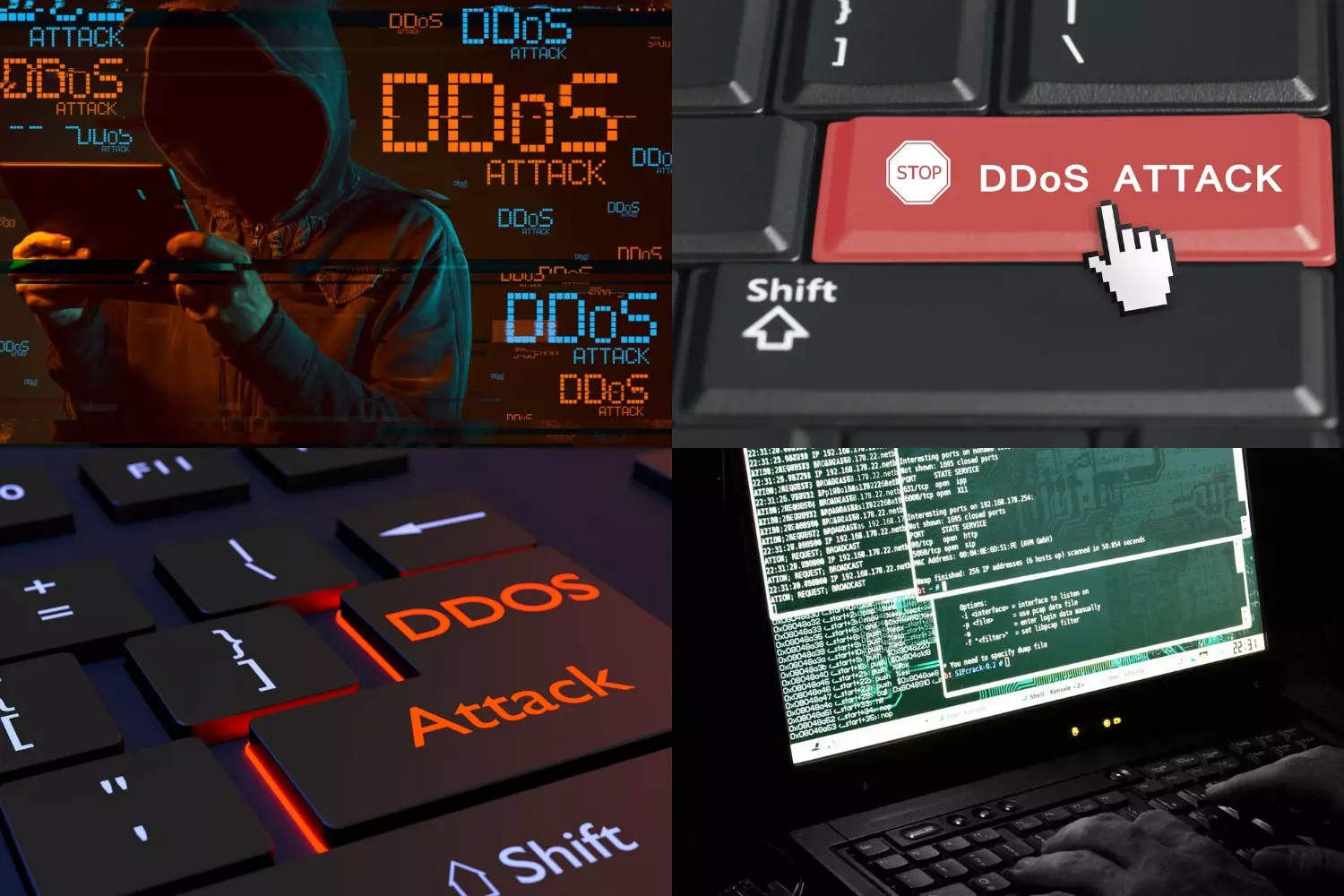 A real-life example would be the 2018 GitHub DDoS attack. The popular developer platform witnessed traffic that clocked in at 1.35 terabits per second, which was later traced back to tens of thousands of unique endpoints. This attack set the record for the most traffic being used to attack a system.
A real-life example would be the 2018 GitHub DDoS attack. The popular developer platform witnessed traffic that clocked in at 1.35 terabits per second, which was later traced back to tens of thousands of unique endpoints. This attack set the record for the most traffic being used to attack a system.
Malware
This is a type of attack where a computer system or other types of systems are infected with malicious computer software or some other kind of virus. When a computer is infected with a virus or corrupted by malware, it could be used for several purposes, such as stealing personal data, causing damage to data, and even carrying out other criminal acts.
Identity theft
Identity theft is another type of cybercrime in which cybercriminals usually carry out various different attacks to steal the victim’s personal identity. This usually involves the victim’s identification of social security number and credit card information, with which the cybercriminals take on the victim’s identity and act like them, whilst making purchases or other illegal actions.
Cryptocurrency jacking
Cryptocurrency jacking is when hackers mine cryptocurrencies using resources that they do not own. For example, the cybercriminals do this by getting the victim to click on a malicious link through an email, which loads malware code onto the computer and infects it, or even through an infected website that does the same execution. The code then works in the background while the victim uses the computer normally.
Cyber Extortion
Cyber extortion is when cybercriminals demand money from a victim, usually in bitcoin, and if they are not paid, they then threaten to carry out an attack on the victim’s computer system. Usually, cybercriminals also hack your data, computer system, or any other sensitive information as a hostage until their demands are met, which is usually a payment. The attacks they threaten to carry out are usually in the form of ransomware or a DDoS attack, which could have heavy consequences.
Cyber Espionage
Cyber espionage is similar to previously mentioned examples of cybercrime; however, this usually happens with government or company data. Cybercriminals use computer networks to gain illicit access to confidential information, which is usually held by the government or other organizations.
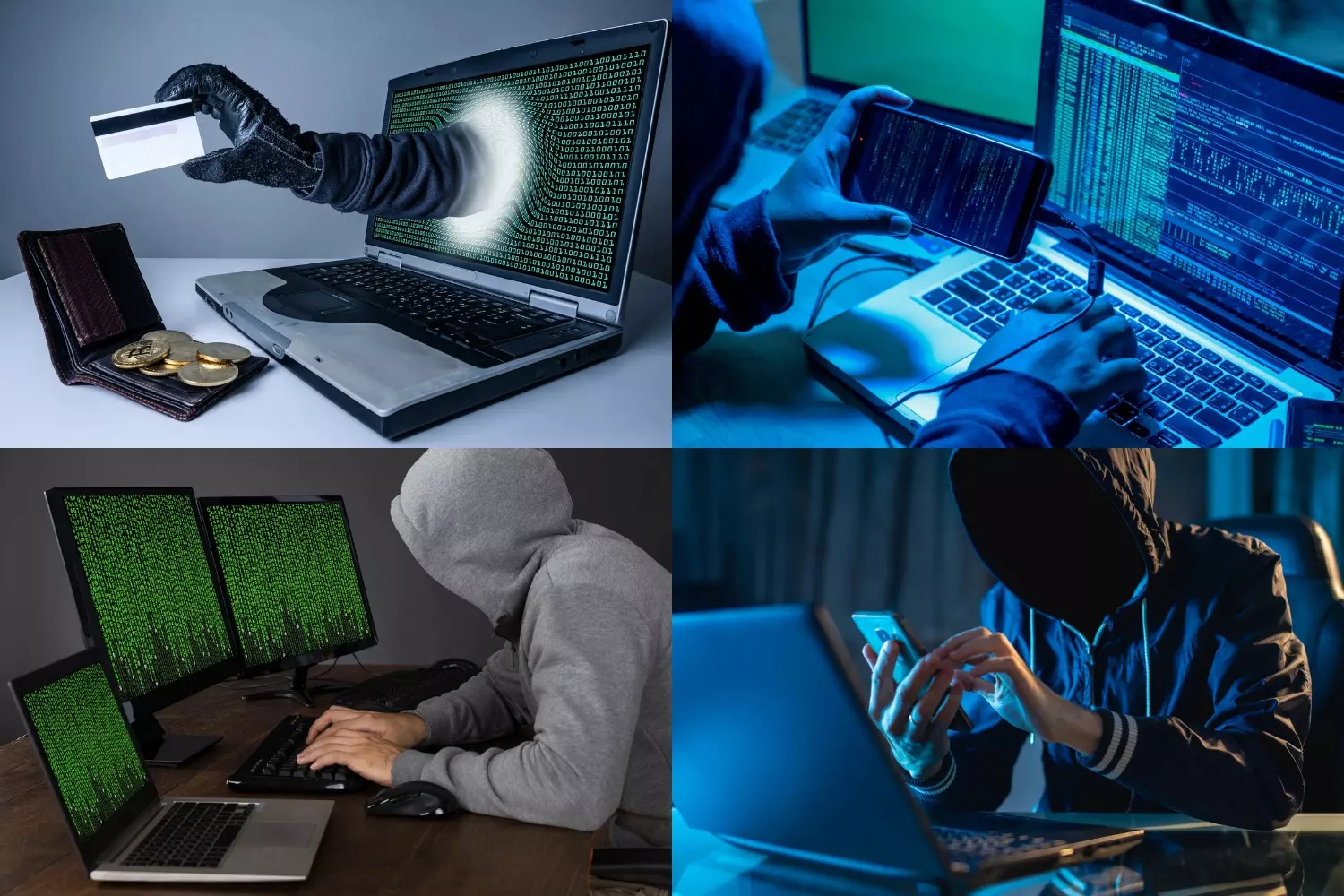 This type of confidential information usually involves state secrets and company plans, and the hackers try to extort their victims for a payment. This is also the case when governments use this form of cyberattacks on other governments to steal secrets and obtain plans in order to benefit their own state.
This type of confidential information usually involves state secrets and company plans, and the hackers try to extort their victims for a payment. This is also the case when governments use this form of cyberattacks on other governments to steal secrets and obtain plans in order to benefit their own state.
Who is at most risk?
Based on the aforementioned examples, cybercriminals are able to target governments, companies, and even individuals. At the end of the day, no one is more or less safe from the dangers of the cybercriminals. Cybercriminals don’t discriminate when picking out their victims since, at the end of the day, they are trying to profit from their attacks and crimes.
The impact of cybercrime
It is obvious with many different types of cybercrimes, there is a devastating influence, which involves a high financial impact. Cybercrimes are committed every single day, against individuals and even high profile companies. All of this cybercrime causes a significant financial impact on economies, which is estimated to be close to $600 billion. There is also a belief that cybercrime is heavily underreported by at least 95%, which could mean that the financial impact is a lot higher than the estimated $600 billion. The importance of protecting financial institutions and their systems is at an all-time high due to the potential damage being so severe.
How to recognize if you’ve been a victim of cybercrime
It’s difficult to recognize sometimes that you have been a victim of a cybercrime; however, some of the cybercriminals do leave clear signs of crimes behind. Some examples of these are:
- Malware – your computer starts operating slower, and you would be receiving several error messages.
- Crypto-jacking – your computer operates slower, and your electricity bill increases.
- Identity theft – you’ll find suspicious charges on your credit card or other bank accounts.
Overall, any sudden decrease in performance from your electronic device is an indication that you have been potentially a victim of a cybercrime. If you believe that you may have been a victim, the best course of action is to report cybercrime to an organization that deals with cybercrime.
Reporting Cybercrime: How to Take Action and Seek Help
Reporting cybercrime is essential to combat online threats and protect yourself and others from digital harm. Here’s how to take action and seek help:
- Contact Law Enforcement: Report cybercrimes to your local law enforcement agency or a dedicated cybercrime unit. They can investigate and take legal action against perpetrators.
- Use Online Reporting Tools: Many countries have online platforms or websites where you can report cybercrimes. These platforms streamline the process and allow you to provide detailed information.
- Contact Cybersecurity Agencies: Notify relevant cybersecurity agencies or organizations, such as the Internet Crime Complaint Center (IC3) in the United States or Europol’s European Cybercrime Centre (EC3) in Europe.
- Contact Your Bank: If you’ve experienced financial cybercrime, contact your bank immediately to secure your accounts and report fraudulent transactions.
- Notify Social Media Platforms: Report cyberbullying, harassment, or other malicious activities on social media platforms. They may take action against abusive users.
- Document Evidence: Keep records of cybercrime incidents, including emails, chat logs, or screenshots. This evidence can be crucial for investigations.
- Seek Legal Advice: Consult with an attorney if you believe the cybercrime involves legal issues or if you plan to take legal action against the perpetrator.
- Educate Yourself: Stay informed about common cybercrimes and their prevention. Awareness can help you avoid falling victim to scams.
- Use Victim Support Services: Seek support from victim support organizations or cybercrime victim support groups. They can offer emotional and practical assistance.
- Practice Prevention: Continue practicing good cybersecurity habits to reduce your risk of future cybercrimes.
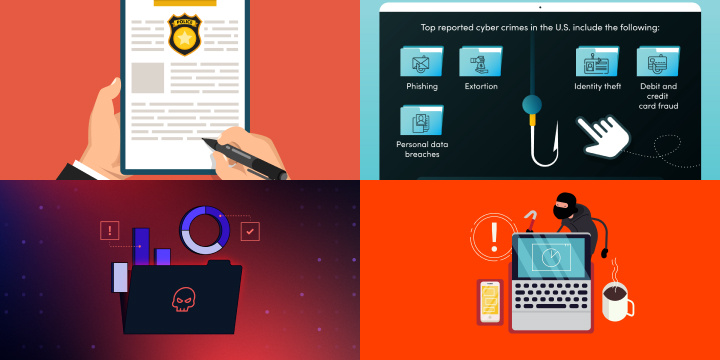
Reporting cybercrime not only helps authorities apprehend criminals but also contributes to a safer online environment for everyone. Don’t hesitate to seek help and take action if you’ve been a victim of cybercrime.
How to prevent cybercrime

Probably the most important question you may have right now is how to protect yourself against cybercrime after learning about their threats. Here are some of the best ways to protect yourself.
Update your software and operating system (OS)
Having a constantly updated OS and software guarantees that your computer is at less risk of being a victim of cybercrime since you are benefiting from the latest safeguard patches that are updated to shield your system.
Download and keep your antivirus software updated
Using any type of antivirus software system is one of the best ways to protect yourself from any cyber-attacks.
The most important part is to keep it updated as the newest updates always bring more protection to your computer.
Use secure passwords
In order to avoid having your accounts hacked, for example, bank accounts, it is always important to have a highly strong and secure password. Whenever your password includes randomly generated characters, it’s a lot harder for the hackers to crack them.
Never open an attachment from a spam email
This probably is one of the oldest and most popular tricks that hackers use to infect their target’s computer. However, it is well known at this point to not open any attachments that you receive in your spam.
Don’t open links from untrusted sources
This extends the previous remark to not opening links from emails; however, it’s also important to point out not to open links from unfamiliar or shady websites or messages that you may receive on your smartphone. Avoiding any kind of unknown links is one of the best ways to stay protected online.
Don’t give out individual data unless it’s secure
It’s crucial to never share your personal data with unfamiliar people. Additionally, even if you are speaking to somebody you already know, it’s still important to not share individual information over a call or email unless you are aware that the link is secure or that your email is not compromised.
Make a direct connection with companies regarding doubtful appeals
If you are requested for personal data by a representative of an organization who has called you, in order to make sure that it is the company actually calling you, hang up and call them right back on the phone number mentioned on their official website. This is important in order to ensure that you are not speaking with a scammer. To be more secure in this situation, it’s best to use a different number, since some professional cybercriminals are able to fully take control of the line and reroute your calls.
Be careful of which websites you visit
Related to what was previously explained regarding opening suspicious links, the same goes for opening suspicious URLs. Some of the URLs that cybercriminals use have mistakes in them that can usually go unnoticed and disguise themselves as website links from high profile companies or government websites.
Always check your bank statements
One of the best ways to notice if you have been a victim of cybercrime is to regularly check your statements. If you have strange transactions from your account, always contact your bank, and in those cases, the bank is able to investigate whether those transactions were fraudulent.
Use VPN
If you use Internet at home through Wi-Fi, it’s not always neccessary to use VPN connection often. Usually such services are used, when there is a need to enter blocked web-site.
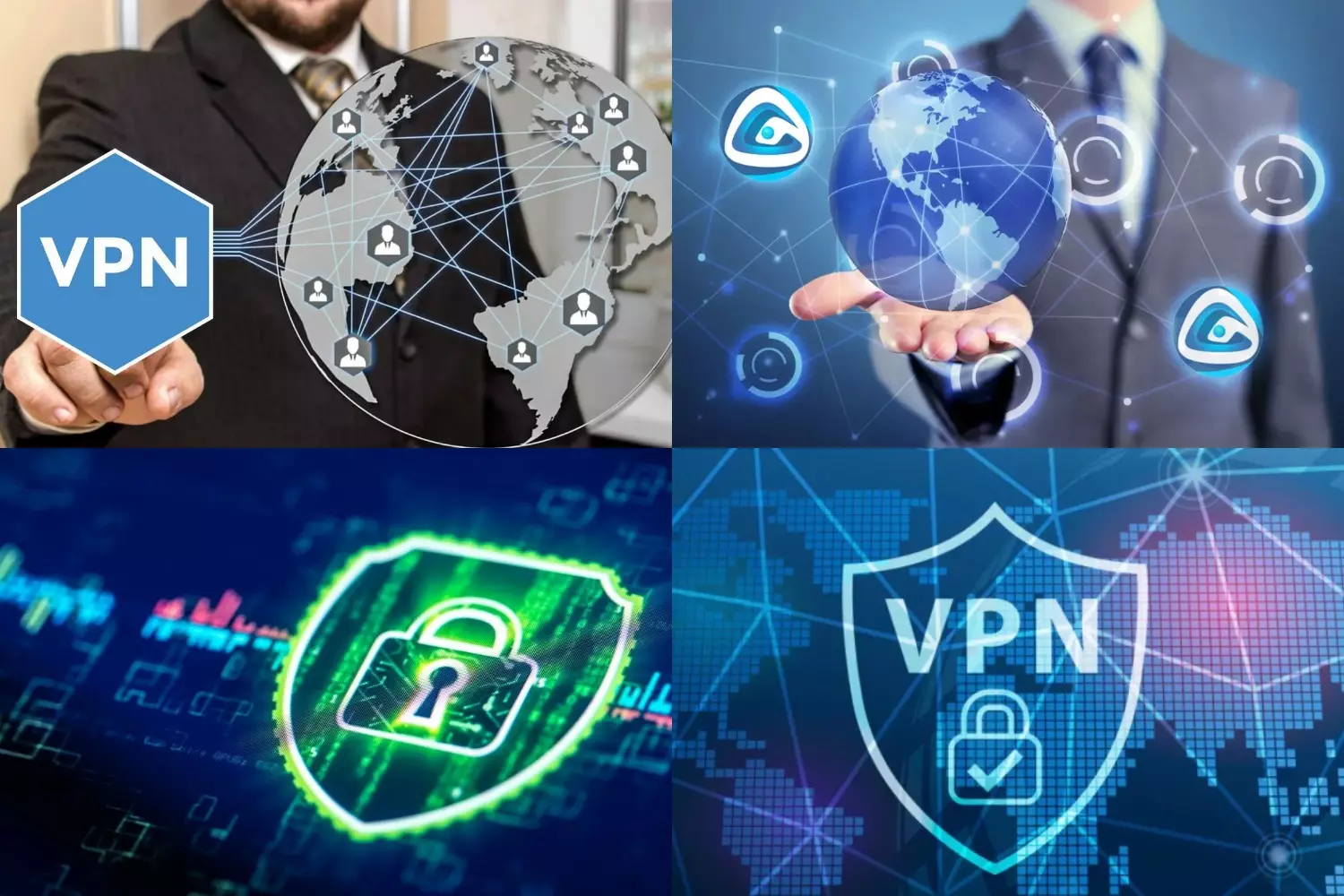 But if you use public Wi-Fi network, better first make a connection to VPN and then connect to the Wi-Fi public network. In this case your real IP-addree will be hidden, and hackers will have no possibility to steal your passwords or other personal data.
But if you use public Wi-Fi network, better first make a connection to VPN and then connect to the Wi-Fi public network. In this case your real IP-addree will be hidden, and hackers will have no possibility to steal your passwords or other personal data.







